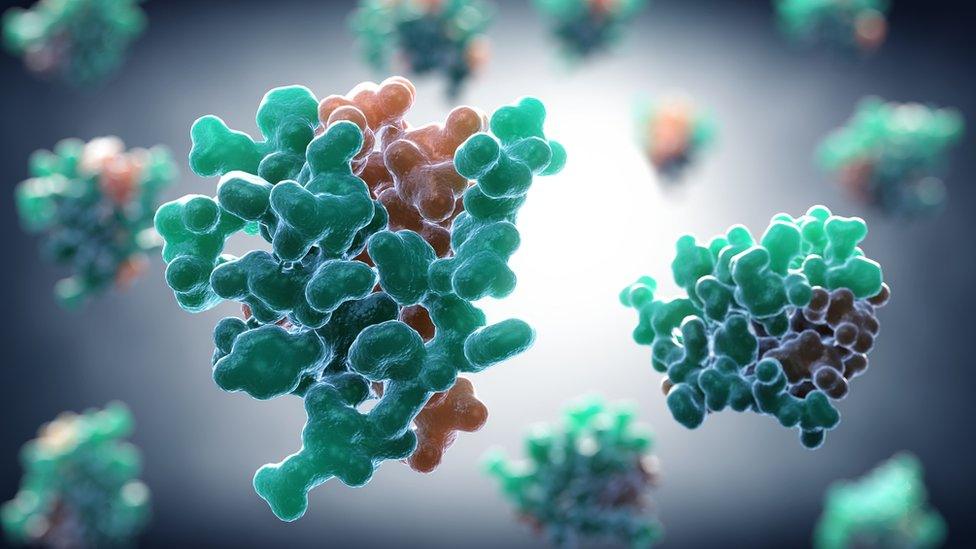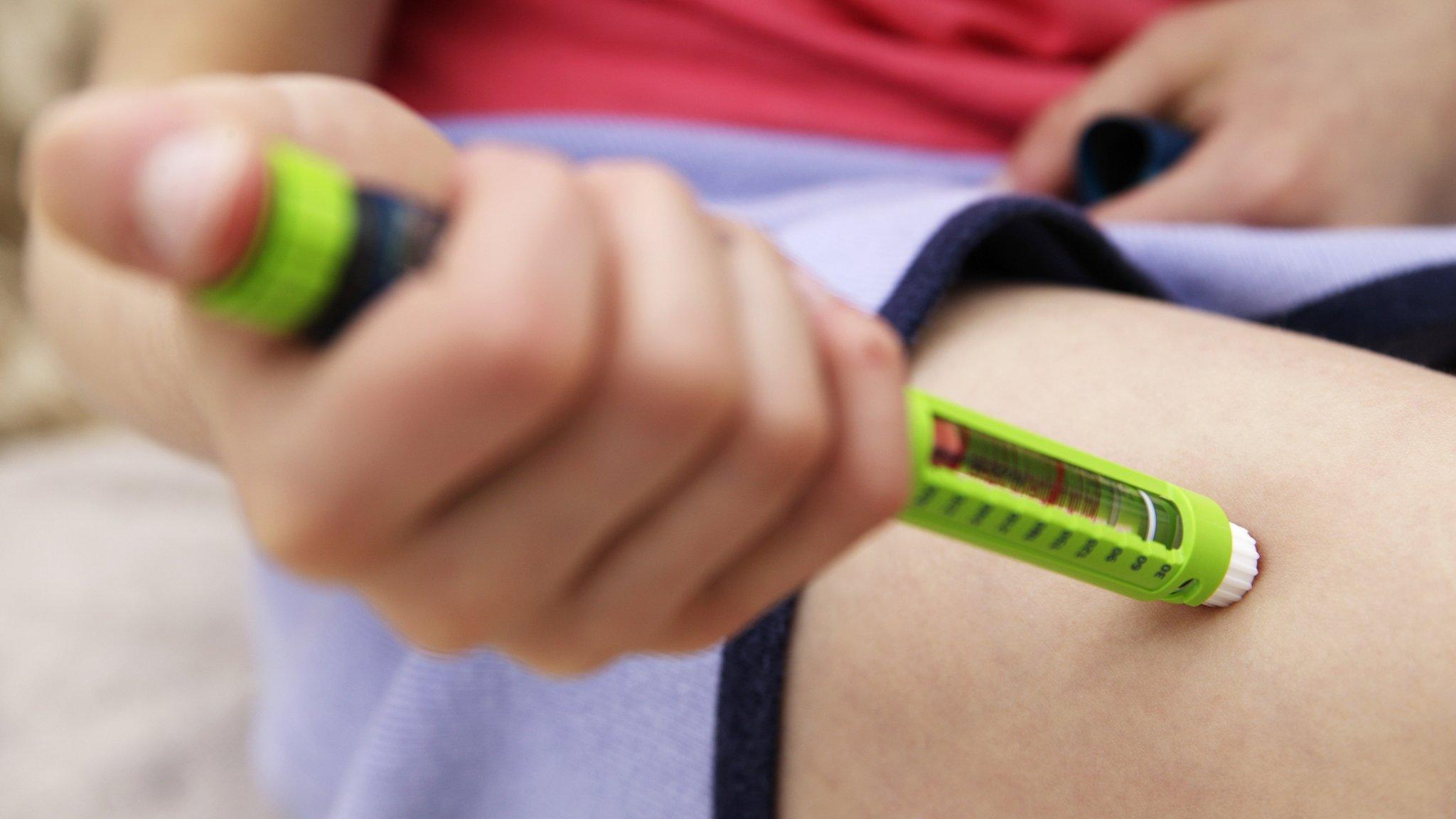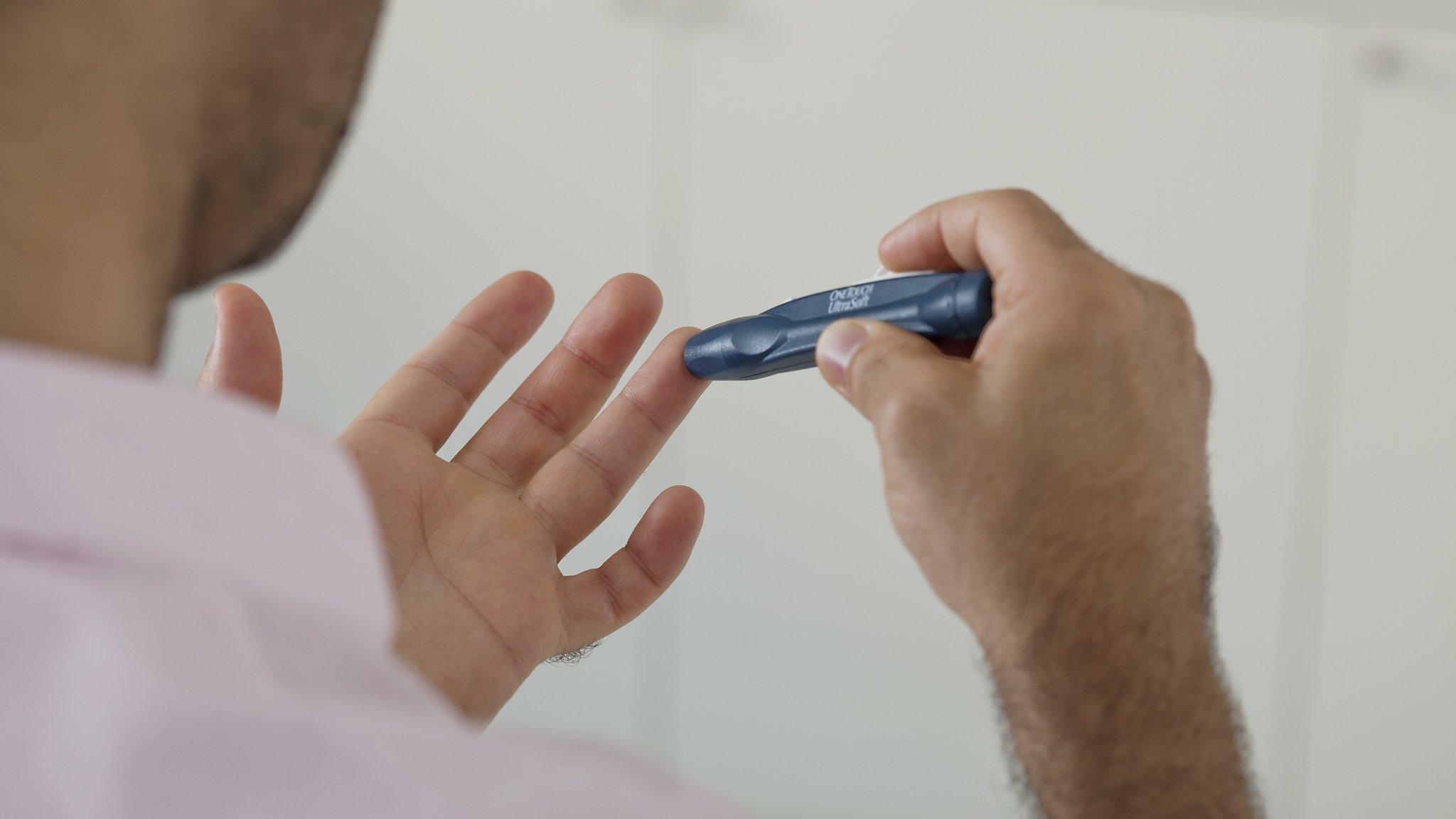Trial aims to 'stall' type 1 diabetes
- Published
- comments
Type 1 diabetes trials give hope for "a more normal life"
A trial has begun in London of an immunotherapy treatment aimed at halting the progression of type 1 diabetes.
Twenty-four volunteers are being recruited for the study, external in the Biomedical Research Centre at Guy's hospital.
In type 1 diabetes the immune system destroys the cells that make insulin, the hormone needed to control blood sugar levels. The hope is the treatment will re-train or reset the immune system.
All the patients being recruited have been recently diagnosed with type 1 and so still have some remaining beta cells - which are found in the pancreas and are responsible for making insulin.
Prof Mark Peakman, King's College London, who is leading the trial, said: "If we get in with this therapy early enough we may be able to protect the beta cells that remain in those patients so that they continue to make some of their own insulin which would give them better control of blood glucose and mean their risk of future complications of diabetes is reduced."
Natalie Worrall from Kent, aged 20, was the first volunteer to receive the MultiPepT1De, external injection.
Natalie, who was diagnosed with type 1 diabetes in December 2014 and needs to inject insulin four times a day in order to keep her blood glucose levels stable, said: "I'm hoping the injections will slow down the progression of my diabetes so that I can live a more normal life."
Another trial participant, Aleix Rowlandson, aged 18, from Lancashire, was diagnosed with type 1 in September 2015.
She said: "It was a big shock when I found out I had type 1. I was keen to volunteer for something that may help find a cure at some point in the future."
Protective response
All the volunteers will receive six injections, four weeks apart.
In healthy people the immune system has a complex system of checks and balances to enable it to destroy harmful pathogens - but not healthy tissue. Part of the regulation is done by T regulatory cells, which suppress the immune response from attacking the body.
The injections contain peptides - small fragments of protein molecules found in the insulin-producing beta cells of the pancreas.
It is hoped these will prompt T regulatory cells in the immune system to mount a protective response to the beta cells, so re-training the immune system.

Diabetes
There are two main types of diabetes -
Type 1 - where the pancreas does not produce any insulin
Type 2 - where the pancreas does not produce enough insulin - or the body's cells do not react to insulin
Type 1 diabetes can develop at any age, but usually appears before the age of 40, particularly in childhood.
Around 10% of all diabetes is type 1, but it is the most common type of childhood diabetes, so it is sometimes called juvenile diabetes or early-onset diabetes
In type 2 diabetes, the body either fails to produce enough insulin to function properly, or the body's cells do not react to insulin. Around 90% of adults with diabetes have type 2, and it tends to develop later in life than type 1.
Source: NHS Choices

The development of MultiPepT1De, and the science behind it, has been funded by the Wellcome Trust, Juvenile Diabetes Research Foundation (JDRF) and Diabetes UK.
The primary goal of the study is to assess the safety of the treatment, but researchers will also be looking at its effectiveness including whether any protective effect continues after the injections have stopped.
Prof Peakman said laboratory and animal model research had produced promising results, and early studies in patients showed some potentially important immune and metabolic changes.
Jack Meaning, aged 29, an economist, was diagnosed with type 1 diabetes in October 2014. He was on a trial of an earlier, simpler version of the immunotherapy, MonoPepT1De, external, which has now been completed, although the results have yet to be published.

The hormone insulin is needed to control blood sugar levels
He said: "It's been fantastic. The trial finished nine months ago but my blood glucose control continues to be really tight. To my mind, a large part of that is a result of the study I was on."
The research team at Guy's stress it is far too early to make any claims about the effectiveness of their immunotherapy approach.
If the current trial is successful then the eventual aim is to test the treatment in children, before diabetes develops, with the goal of preventing the loss of insulin production.
That would, in effect, act like a vaccine against type 1 diabetes, which affects around 400,000 people in the UK, 29,000 of them children.
Karen Addington, UK Chief Executive of JDRF said: "If we can teach the immune system to stop attacking the insulin-producing beta cells in the pancreas we can potentially prevent type 1 diabetes from developing.
"This would be a major breakthrough. Incidence of the condition is rising, especially among young children, so research projects like this must be supported."
Researchers at the Biomedical Research Unit at Guy's hospital are still recruiting , externalfor their trial. Volunteers need to be aged 18-45 and have been diagnosed with type 1 diabetes in the last four years.
- Published10 October 2014

- Published27 June 2013
